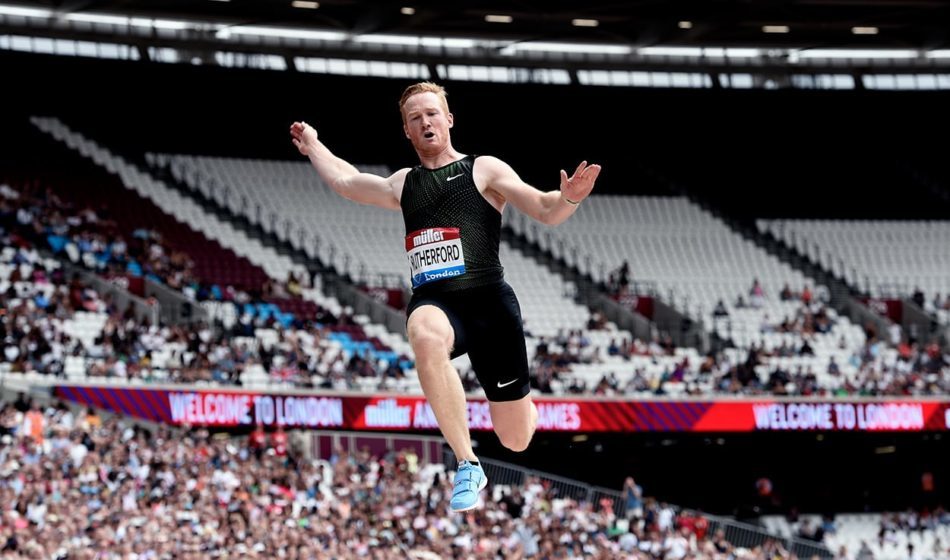
We examine the age-old question surrounding nature v nurture and discover some intriguing findings
When it comes to sporting excellence, how much of a factor is what you are born with as opposed to what happens afterwards? In touching on this old question, a recently published study might appear, at first glance, to weight nurture well above nature.
The research looked at the genes of five elite track and field athletes and 503 members of the public. More than 100 specific genes known to have a link to speed, power and endurance were honed in on, with the study concluding that you could not identify the elite athletes from genes alone.
Some of the details were even more intriguing. When it came to genes linked to speed and power, 14% of the randomly chosen control group from the general population scored better than any of the sprinter-type athletes.
Those athletes were former European junior 100m champion Craig Pickering, who also co-authored the paper, 2012 Olympic long jump champion Greg Rutherford and former sub-45-second 400m runner Andrew Steele.
Even more interestingly, when it came to genes associated with stamina, these three outperformed the international endurance runners Tom Lancashire and Andrew Lemoncello, who competed at the Olympics over 1500m and steeplechase respectively. The average for the general public was also higher.
Those were the headline-grabbing statements. However, before we assume that Rutherford was born with better endurance potential than 2:13 marathoner Lemoncello, here is the main take home message from the paper.
Pickering, who worked for several years for genetics company DNAfit, set out only to establish how reliable gene-testing could be in identifying elite talent. The conclusion was that genetic information is not capable of accurately discriminating between elite athletes and non-athletic controls.
That is essentially down to two factors, Pickering explained. While it does show that nurture plays a significant role, improved scientific knowledge would presumably improve the results of genetic talent identification.
Craig Pickering (Mark Shearman)
“It’s interesting how many normal people had genetic profiles that suggested they were more talented than the elite athletes,” he said. “And that’s surprising in as much as it either means a lot of people have the genetic capability to be successful but they just haven’t been or it means that the genetic information that we have isn’t particularly useful. Both those things are interesting and we don’t know what the true answer to that is.
“On the surface it suggests you can’t use genetic testing for talent identification. Maybe you could if you knew more genes, maybe you could if you did some weighting of the algorithm, so if you placed more weight on some genes than others, but the more likely thing is being an elite athlete is complicated.
“Genetics are clearly part of the picture but certainly not all of it. Some of it’s going to come down to luck, some of it is going to come down to whether you start the sport or not, injuries, opportunities, etc.”
That may or may not change as, at the moment, we simply don’t know enough about which genes do what. One recent review highlighted that 155 gene markers had been associated with athletic talent and this list is growing.
As knowledge of the subject grows, so the picture may evolve, but it is set to take a long time, believes 2008 Olympian Pickering, who now works as athlete pathway manager for Athletics Australia.
“It could happen but you’d have to know a lot more genetic variants and you’d have to be able to weight that,” he said. “So you’d have to be able to say, ‘Okay this gene has more of an effect than another gene’. We’re still probably 20-40 years away from having that level of knowledge.”
As if to stress how missing data could be skewing the picture, Pickering pointed out that, going by their findings, “20% of people in the world would be genetically more talented than Greg Rutherford.” He added: “It doesn’t feel like that would be true.” That percentage would probably come down with a better scientific model.
Already DNA tests for sporting performance are available to purchase online but, on the evidence of this study, it could be money wasted.
One of the potential uses for DNA testing could be on children to give indications as to which sporting direction, if any, they should take. They could also be used by sports federations, for example, to help suggest which type of training would be beneficial to an elite athlete.
However, ethical concerns arise with both scenarios, even assuming they could be relied upon for accuracy.
Pickering said: “A child has almost a blank slate for the future so, if you’re starting to put them in boxes based on a very rough genetic score, there’s issues with that. If British Athletics said you’ve got to have a genetic test, for example, what happens if you decide you don’t want that for whatever reason? Can you be punished by British Athletics?”
The future of the role of DNA testing in sports performance is uncertain. However, it’s clear that your genes only do so much in shaping your destiny.
Pickering said: “I think there’s a lot of people out there that would have the physical capacity to become elite athletes if they trained for it but they didn’t have the opportunity because they might find themselves in extreme poverty or they might not have the psychological ability to perform under pressure, they might not have been particularly dedicated, they might have got injured quite young or they might have just been unlucky.”
It’s a reminder to any young athletes not to give up too easily. Although talent is usually spotted at a young age, you have to persist with training and get the breaks in order to make it to the top.















 Phone: (800) 737. 6040
Phone: (800) 737. 6040 Fax: (800) 825 5558
Fax: (800) 825 5558 Website:
Website:  Email:
Email: 






